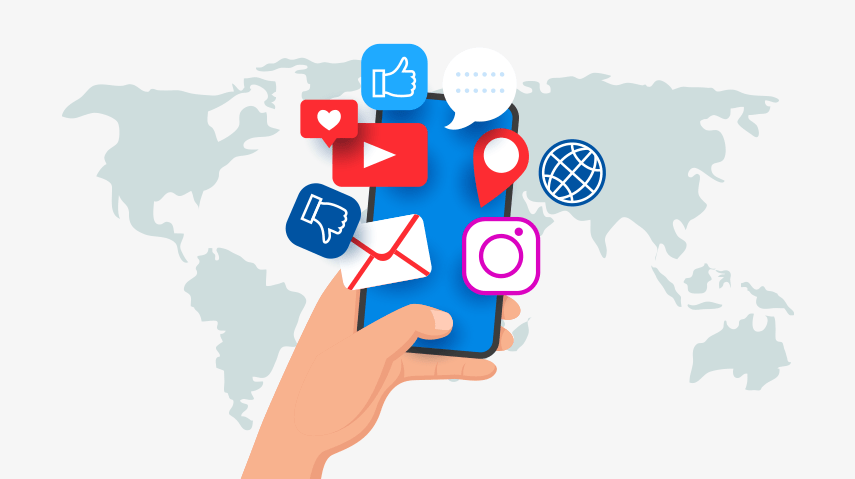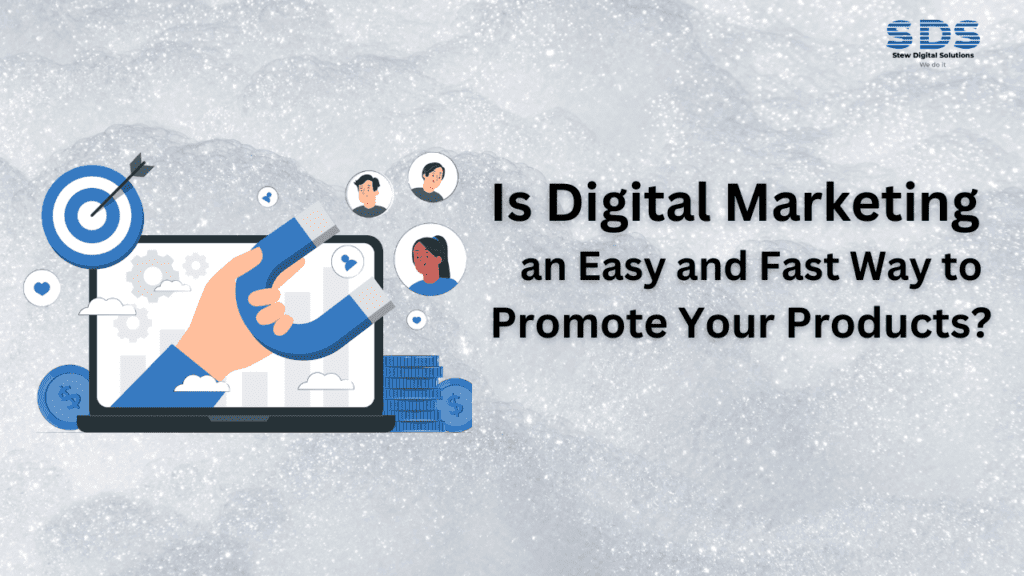In today’s digital landscape, businesses have a vast array of digital marketing channels at their disposal to reach and engage with their target audience. Leveraging the power of digital marketing channels is essential for driving business growth in the online realm. However, with so many options available, it can be overwhelming to determine which channels are the most effective for your specific goals. This blog post aims to explore the different digital marketing channels and their unique advantages, empowering businesses to make informed decisions when crafting their marketing strategies.

1. Social Media Marketing:
Social media marketing has become an integral part of digital marketing strategies. Platforms like Facebook, Instagram, Twitter, LinkedIn, and YouTube offer opportunities to build brand awareness, engage with customers, and drive website traffic. Through targeted advertising, businesses can reach specific demographics and tailor their messaging accordingly. Social media also provides a platform for customer feedback, fostering brand loyalty and customer advocacy.
2. Search Engine Optimization (SEO):
Search Engine Optimization (SEO) focuses on improving a website’s visibility in search engine results pages. By optimizing website content and structure, businesses can increase organic traffic and attract relevant users who are actively searching for their products or services. Effective SEO strategies involve keyword research, on-page optimization, link building, and technical optimization. Investing in SEO can lead to sustainable long-term growth and improved search engine rankings.
3. Pay-Per-Click Advertising (PPC):
Pay-Per-Click (PPC) advertising allows businesses to display ads on search engine results pages or other websites, paying only when a user clicks on the ad. Platforms like Google Ads and Bing Ads offer robust targeting options, enabling businesses to reach their desired audience effectively. PPC campaigns can drive immediate traffic to websites and are particularly useful for promoting specific products, services, or time-sensitive offers.
4. Email Marketing:
Email marketing remains a highly effective channel for nurturing customer relationships and driving conversions. By building an email subscriber list, businesses can deliver targeted and personalized messages to their audience. Email marketing campaigns can include newsletters, promotional offers, product updates, and personalized recommendations. Automation tools further enhance email marketing efforts by enabling businesses to send relevant messages based on user behavior and preferences.
5. Content Marketing:
Content marketing involves creating and sharing valuable, relevant, and consistent content to attract and retain a clearly defined audience. Content can take various forms, such as blog posts, videos, infographics, podcasts, and whitepapers. A strong content marketing strategy helps establish thought leadership, build brand authority, and engage with customers. It also supports SEO efforts by generating high-quality backlinks and improving website visibility.
Conclusion:
When it comes to digital marketing, choosing the right channels is crucial for business growth. Social media marketing, search engine optimization, pay-per-click advertising, email marketing, and content marketing are just a few of the powerful channels available to businesses. By understanding the unique advantages of each channel and aligning them with your business goals and target audience, you can create effective marketing strategies that drive growth, increase brand awareness, and engage with customers in meaningful ways. Embrace the opportunities provided by digital marketing channels and adapt your strategies as the digital landscape continues to evolve, ensuring your business thrives in the online realm.
The digital marketing channels you should prioritize depend on factors such as your target audience, industry, and marketing goals. It's important to conduct market research and analyze your audience's online behavior to identify the channels they frequent the most. Additionally, consider the strengths of each channel and how they align with your business objectives. A comprehensive strategy often includes a combination of channels such as social media marketing, search engine optimization (SEO), email marketing, and content marketing.
Social media marketing can contribute to business growth by increasing brand awareness, driving website traffic, and fostering customer engagement. Through targeted advertising and content promotion, businesses can reach a wide audience and build a loyal following. Social media platforms also provide valuable insights into customer preferences and behaviors, enabling businesses to refine their marketing strategies for better results.
Search engine optimization (SEO) plays a crucial role in business growth by improving a website's visibility in search engine results pages. A strong SEO strategy helps attract organic traffic from users actively searching for products or services related to your business. By optimizing your website's content, structure, and technical aspects, you can enhance user experience, increase organic rankings, and drive targeted traffic to your site, ultimately leading to more conversions and business growth.
Email marketing remains a powerful tool for nurturing customer relationships and driving conversions. By building an email subscriber list, businesses can communicate directly with their audience, delivering personalized messages, exclusive offers, and relevant content. Email marketing allows businesses to engage with customers at various stages of the buyer's journey, keeping their brand top-of-mind and encouraging repeat purchases. With the help of automation tools, businesses can streamline their email marketing efforts and achieve greater efficiency.
Content marketing can be beneficial for businesses across various industries. It allows you to showcase your expertise, provide value to your audience, and build trust and credibility. The key is to create content that resonates with your target audience and aligns with their interests and needs. Whether you are in a B2B or B2C industry, content marketing can help attract and engage your audience, drive organic traffic, and position your business as a thought leader in your niche.
Remember, when exploring digital marketing channels for business growth, it’s essential to consider your specific business goals, target audience, and available resources. A strategic and integrated approach to digital marketing can maximize your reach, engage your audience, and drive sustainable business growth in the online realm.


